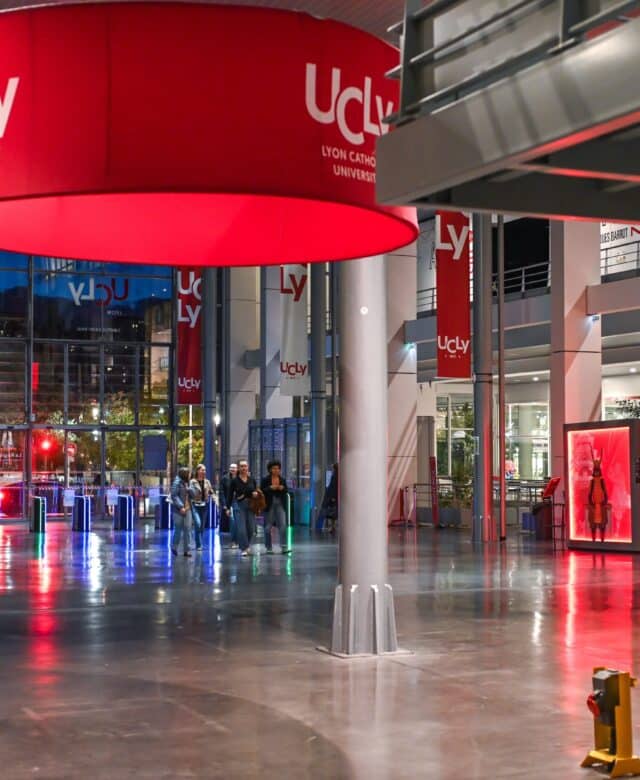
2024 - 2025 : a year of transition in preparation for the coming decades
"What is the place of a Catholic university in today's France and Europe? This was the question guiding the academic lecture given by UCLy Rector Gregory Woimbée at the university's solemn opening on Thursday, October 10. With the start of a new term of office, in an uncertain national and international context for the academic world, it is now time to build a new strategic direction for our university.
updated on 14 January 2025
UCLy
Every year, UCLy's "Rentrée Solennelle" marks the official start of the academic year. A moment of tradition and reunion, it is also an opportunity for reflection, bringing together the entire UCLy rectoral team alongside distinguished guests from a wide variety of backgrounds: the Church, academia, politics and the military. For the first academic year of his mandate, UCLy's new Rector Grégory Woimbée turned the meeting into an exercise in foresight. It was an opportunity for him not only to assess how far UCLy has come since it was founded 150 years ago in 1875, but also to imagine the university's future in an increasingly complex world.
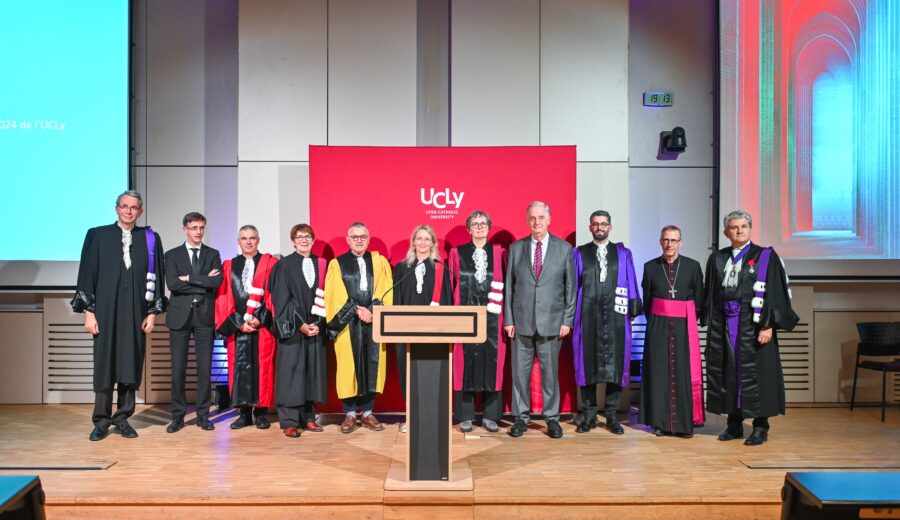
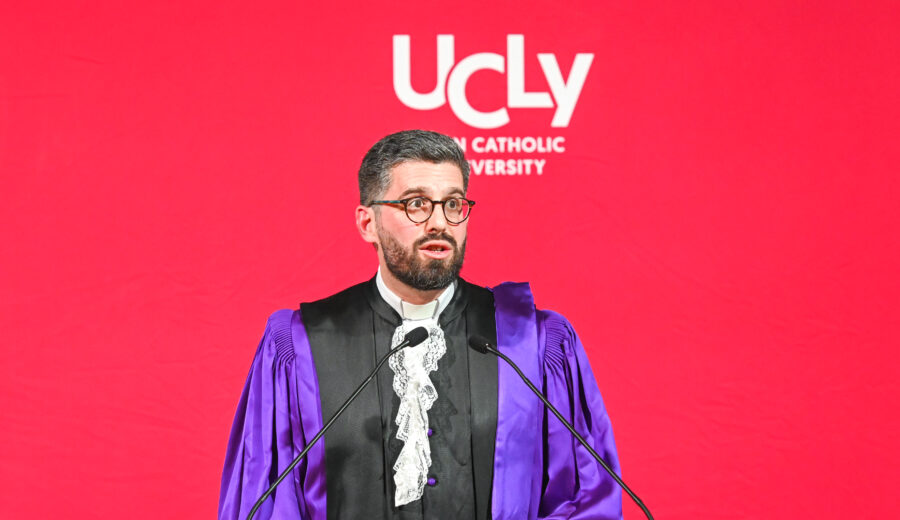
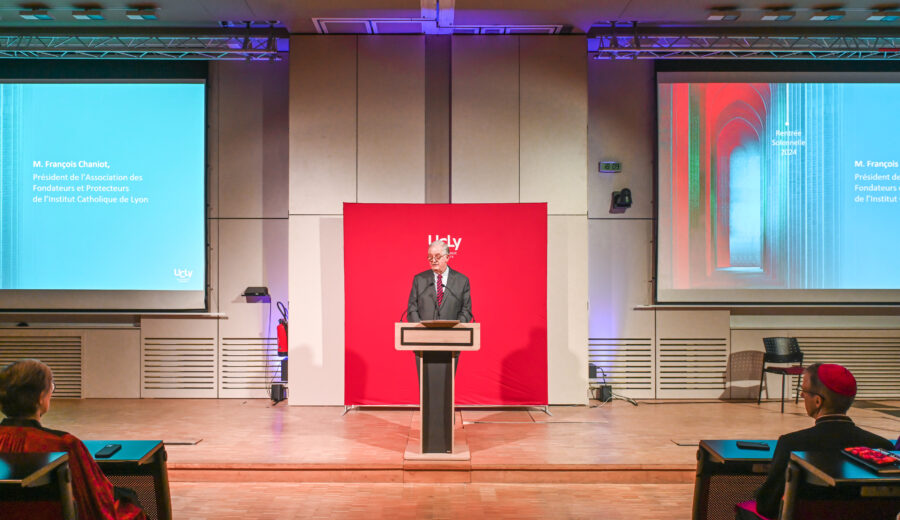
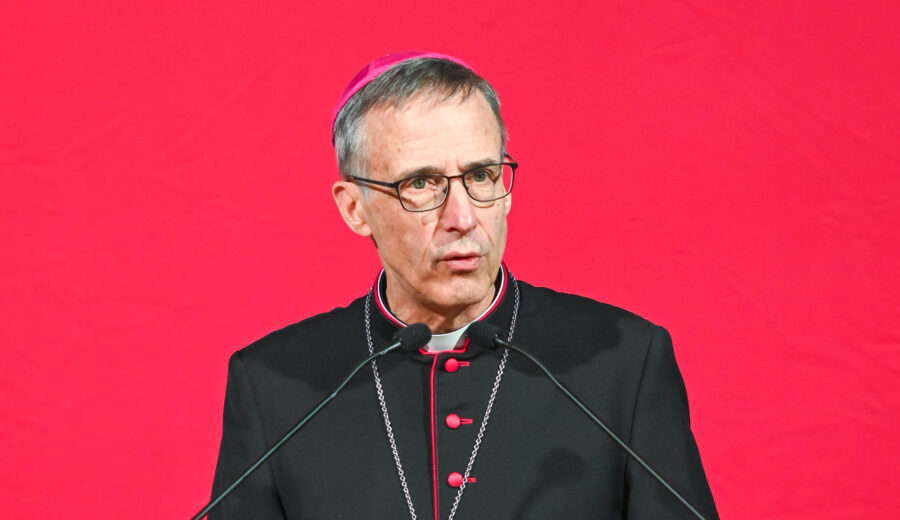
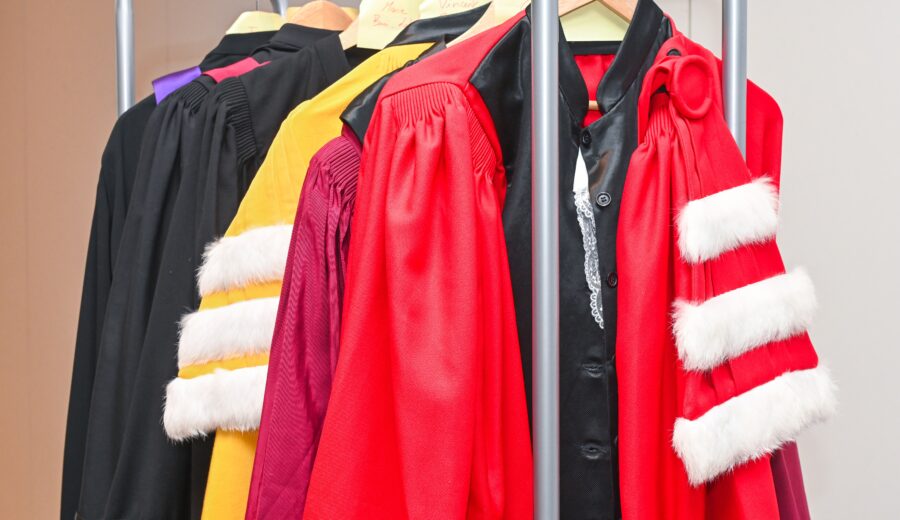
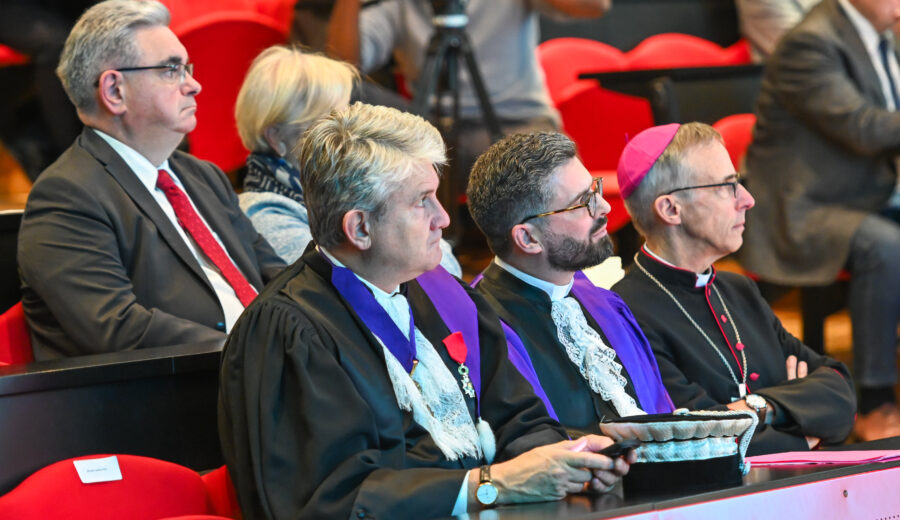
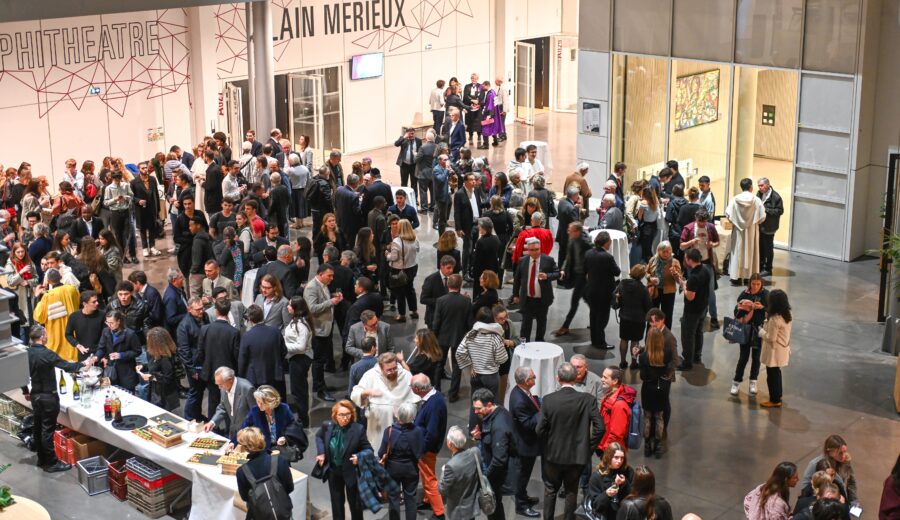
In practical terms, UCLy's future is now being built on solid foundations. In 2024-2025, UCLy can still count on growth in student numbers, with an increase of around 3.7% on last year.
In two or three years' time, we'll be approaching capacity limits on the Carnot and Saint-Paul campuses. "We're not far from UCLy's definitive low point," observes the Rector. "There's still room for improvement, but we're not going to change scale any time soon. In fact, we don't want to: we've reached the right size to be both academically successful and close to our students."
Annecy and Le Puy-en-Velay, sources of development
Unlike the Lyon campuses, there is still “room for improvement” at the UCLy’s campus Alpes-Europe in Annecy and at its branch in Le Puy-en-Velay. In Annecy, enrolment continues to grow in our Faculty of Law and in our Business School, although Grégory Woimbée is keen to “start thinking” about bringing other disciplines to the campus.
In Puy-en-Velay, the Rector noted that the apprentices in UCLy’s Bachelor in Tourism and Sustainable Development were too isolated in the magnificent Hôtel Dieu building. He now wants to join the CCI du Puy-de-Dôme’s “La Fabrique” campus, which brings together several schools and disciplines in a single building to offer a genuine student experience.
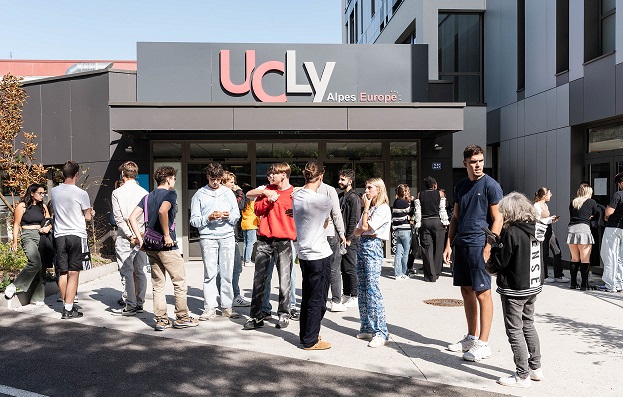
3 major projects in 2024-2025
An evaluation by the HCERES (High Council for Evaluation of Research and Higher Education) :
A new phase of evaluation by HCERES, the public authority responsible for certifying the quality of higher education establishments, will begin in 2024-2025 for UCLy. This is a crucial date for the university, which has been recognized as EESPIG. For Grégory Woimbée, this "retrospective and prospective" work is also an opportunity to draw up a strategic project for the period 2025-2030, and to reaffirm UCLy's attachment to the Lyon university community and to working with public universities.
As an "atypical" entity that stands apart in the world of higher education, UCLy is keen to promote its model of student support and human development. "UCLy is particularly proud to participate in the mission of public service and to be able to maintain a non-profit association, which does not remunerate any shareholders or investors," observes the Rector. "Higher education cannot be reduced to training specialists who will find their place in the wheels of production and consumption? It must also respond to a profound need for dignity and freedom."
A doctoral school for UCLy ?
Since the creation of the “Confluence Sciences et Humanités” Research Unit in 2020, research has been a “major axis” of UCLy’s strategy. Today, our university has 165 researchers. “We’re about to enter a phase in which our research will become firmly rooted,” explains Grégory Woimbée. “We therefore want to participate in doctoral training in all our disciplines.”
Today, only UCLy’s canonical faculties, philosophy and theology, are able to award doctorates. For other disciplines, we’ll need to find a university partner. There are a number of leads abroad, but the Rector wants above all to work with public universities in France.
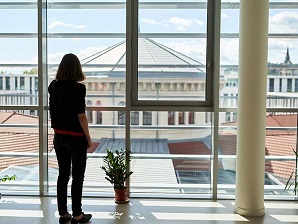
International ambitions
Grégory Woimbée, former Vice-Rector of the Catholic University of Toulouse, is particularly sensitive to the issue of UCLy's international partnerships. " It's a personal preoccupation, but also a corporate need," he explains. "Through UCLy's schools and faculties there is a strong desire to intensify the internationalization of our recruitment policy."
As the Rector observes, the foundations for this work have already been laid. UCLy already welcomes 2,500 foreign students, and every year UCly students spend part of their studies at partner universities. "The work carried out over the past 5 years needs to be deepened and continued," he explains. "I'd like to pay tribute to the work of my predecessor and his team, whose consolidation work means that we are now capable of international deployment"
Internationalization is a personal concern, but also a corporate need. Throughout UCLy's schools and faculties, there is a strong desire to intensify the internationalization of our recruitment policy.
Grégory Woimbée
UCLy can draw on a number of international levers, starting with the network of Catholic establishments and the targeted recruitment drive already underway in Asia and Africa. Last but not least, European exchanges occupy a special place in this strategy: "We are a resolutely European university, in heart and spirit," explains Grégory Woimbée. "We want to promote the European education and research project".
150th anniversary of UCLy : a pivotal moment
From Saint-Irénée 2025 to Saint-Irénée 2026 (June 28), UCLy will officially celebrate its 150th anniversary. A commemorative journey that will echo the "retrospective and prospective" work already underway. "You don't celebrate your birthday if you don't think you have a future!" laughs Grégory Woimbée, who wants to use this journey down memory lane as an opportunity to reflect on the future.
On the one hand, UCLy can draw on the specific features that already make it an "atypical" university. With the world in turmoil, its values of Christian humanism are more relevant than ever. "Society has become so disconnected from reality that criticism of the ideology of limitless growth has no effect", observes Grégory Woimbée. And to reverse this trend, science and the humanities need to work together to find new solutions. A multi-disciplinary approach dear to UCLy: our universities must put innovation at the service of sobriety, and sobriety at the service of innovation. It's striking, even providential, that our DNA resonates so well with the contemporary challenges facing universities
This anniversary is also an opportunity to break down some long-held clichés: "The Catholic university does not feel morally superior, nor does it give lessons," explains Grégory Woimbée. "We're not backward-looking or inward-looking. Our campuses don't feel like besieged citadels, but rather like high-tech beehives and vibrant forums for the voices of youth." "I don't think the Catholic university is obsolete," sums up the Rector. "On the contrary, I believe that the Catholic university is helping to address the crisis affecting the idea of the university, as well as the assaults being waged by profit-driven logics on the worlds of health and education."
The objective has been set, all that remains is to achieve it.